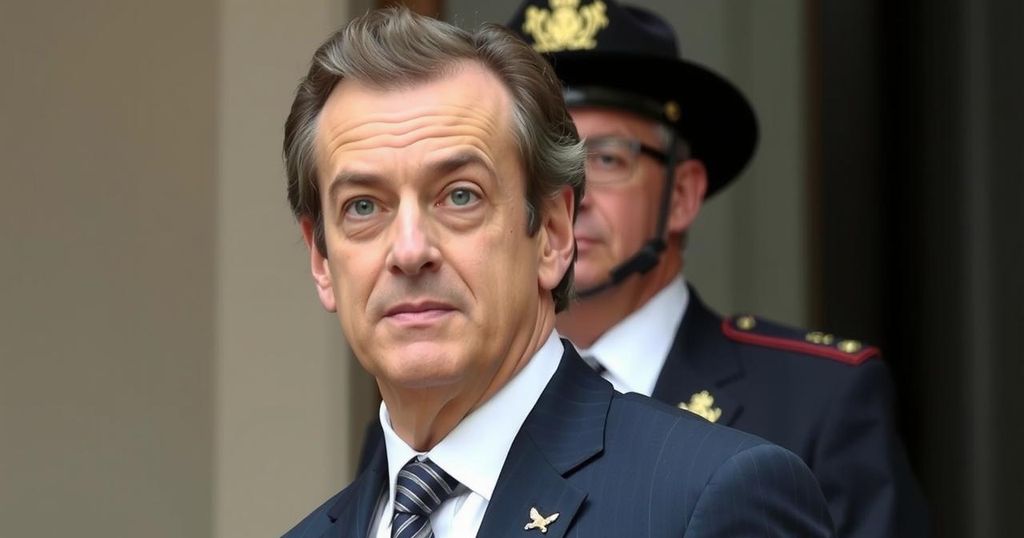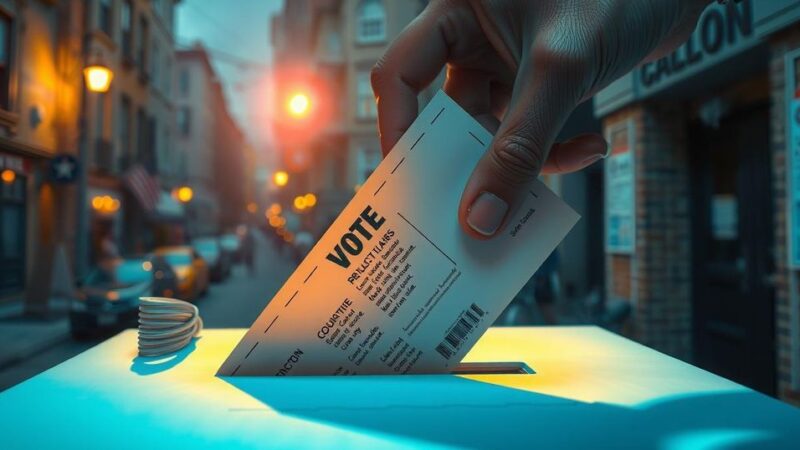Former French President Nicolas Sarkozy is currently on trial for allegedly accepting illicit funds from Muammar Gaddafi to finance his 2007 election campaign. He has denied the charges, attributing them to political motives. The trial could result in a prison sentence of up to ten years if he is found guilty, and it is set to continue until April 10, 2024.
Nicolas Sarkozy, the former President of France, is currently on trial in Paris concerning allegations that he received substantial illicit funds from the late Libyan leader, Muammar Gaddafi, for his 2007 electoral campaign. Prosecutors assert that Sarkozy pledged to assist Gaddafi in improving his global standing with Western nations in exchange for the financial support. Throughout the legal proceedings, Sarkozy, who governed from 2007 to 2012, has consistently denied all allegations, attributing them to motives of political retribution from his opponents.
This trial results from a decade-long investigation that began in 2013, when Saif al-Islam, Gaddafi’s son, accused Sarkozy of accepting millions for his political endeavors. Subsequently, in 2014, businessman Ziad Takieddine publicly claimed to possess evidence demonstrating that Sarkozy’s campaign was heavily funded by Libya, including payments that allegedly continued during Sarkozy’s presidency. Alongside Sarkozy, twelve co-defendants are also facing charges related to the alleged conspiracy and deny any wrongdoing.
In the previous year, Carla Bruni-Sarkozy, the former president’s wife, was charged with concealing evidence associated with the case and was accused of colluding to commit fraud. Sarkozy’s legal troubles extend beyond this trial; he has been a subject of several investigations since his loss in the 2012 elections. Notably, in 2021, he was convicted of bribing a judge, marking him as the first former French leader to be sentenced to prison. He currently serves his sentence at home under surveillance.
This three-month trial regarding the so-called Libya connection is set to continue until April 10. If convicted, Sarkozy faces a potential prison sentence of up to ten years. As he attended court proceedings without an electronic monitoring device, it is anticipated that arrangements for his surveillance will be made as the trial progresses.
The allegations against Nicolas Sarkozy involve claims of accepting illicit campaign contributions from Libya during a politically charged time following the 2011 Libyan Civil War, which led to the toppling of Gaddafi. Sarkozy’s administration had a complex relationship with Gaddafi, marked by both condemnation and cooperation in various international policies. The investigation into these allegations has captured significant public attention in France, reflecting broader concerns regarding political corruption and accountability in leadership. Furthermore, Sarkozy’s multiple legal challenges since leaving office have kept him in the public eye, shaping perceptions of his political legacy and the integrity of France’s political system overall.
In conclusion, Nicolas Sarkozy’s trial over alleged funding from Muammar Gaddafi presents serious accusations that could have significant ramifications for the former president’s legacy and future. As the trial unfolds, it highlights the ongoing issues of political financing and the ethical implications of political relationships with controversial foreign leaders. The outcome of this case may influence not only Sarkozy’s political career but also the broader discourse on transparency in political funding.
Original Source: www.bbc.com






